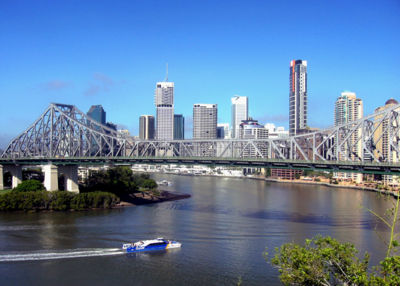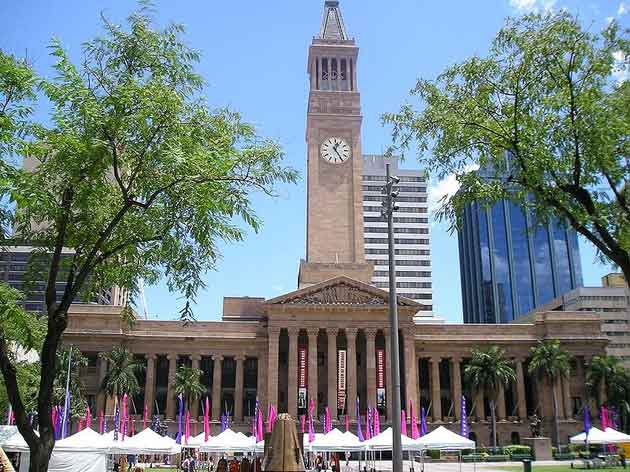- Study in AustraliaAustralian Universities/CollegesPrograms by faculty AusAustralian VisasLife in Australia
- Study In New ZealandNew Zealand UniversitiesPrograms by Faculty NZNew Zealand VisasLife in New Zealand
- Study in CanadaUniversities/Colleges in CANADAPrograms by faculty CanadaCanadian VisasLife in Canada
Brisbane
BRISBANE
Brisbane is the capital and most populous city in the Australian state of Queensland and the third most populous city in Australia. Brisbane's metropolitan area has a population of over 2 million, and the South East Queensland urban conurbation, centred around Brisbane, encompasses a population of more than 3 million. The Brisbane central business district stands on the original European settlement and is situated inside a bend of the Brisbane River approximately 23 kilometres from its mouth at Moreton Bay. Brisbane is in the southeast corner of Queensland, Australia.
Brisbane has a humid subtropical climate (Köppen climate classification Cfa) with warm to hot and humid summers and dry, moderately warm winters. From November to March, thunderstorms are common over Brisbane, with the more severe events accompanied by large damaging hail stones, torrential rain and destructive winds.

Brisbane has the largest economy of any city between Sydney and Singapore, which includes cities like Jakarta, Darwin, Townsville and Cairns, and has seen consistent economic growth in recent years as a result of the resources boom. White-collar industries include information technology, financial services, higher and public sector administration generally concentrated in and around the central business district and recently established office areas in the inner suburbs. Blue-collar industries, including petroleum refining, stevedoring, paper milling, metalworking and QR railway workshops, tend to be located on the lower reaches of the Brisbane River and in new industrial zones on the urban fringe. Tourism is an important part of the Brisbane economy, both in its own right and as a gateway to other areas of Queensland.
Brisbane has multi-campus universities and colleges including Griffith University, Queensland University of Technology and the University of Queensland. Other universities which have campuses in Brisbane include the Australian Catholic University, Central Queensland University, James Cook University, JMC Academy, University of Southern Queensland and the University of the Sunshine Coast.There are three major TAFE colleges in Brisbane; the Brisbane North Institute of TAFE, the Metropolitan South Institute of TAFE, and the Southbank Institute of TAFE. Brisbane is also home to numerous other independent tertiary providers, including the Australian College of Natural Medicine, the Brisbane College of Theology, QANTM, as well as Jschool: Journalism Education & Training.The majority of Brisbane's preschool, primary, and secondary schools are run under the jurisdiction of Education Queensland, a branch of the Queensland Government. There are also a large number of independent and Roman Catholic run schools.

Tourism plays a major role in Brisbane's economy, being the third-most popular destination for international tourist after Sydney and Melbourne. Popular tourist and recreation areas in Brisbane include the South Bank Parklands, Roma Street Parkland, the City Botanic Gardens, Brisbane Forest Park and Portside Wharf. The Lone Pine Koala Sanctuary opened in 1927 and was the world's first koala sanctuary. Brisbane has an extensive transportation network within the city, as well as connections to regional centres, interstate and to overseas destinations. The use of urban public transport is still only a small component of total passenger transport, the largest component being travel by private car.
For more information, please contact one of our offices
Study in Australia | Study in the UK | Study in Malaysia | Study in Canada | Study in the USA | Study in New Zealand
Editor: Nina Zarabi













